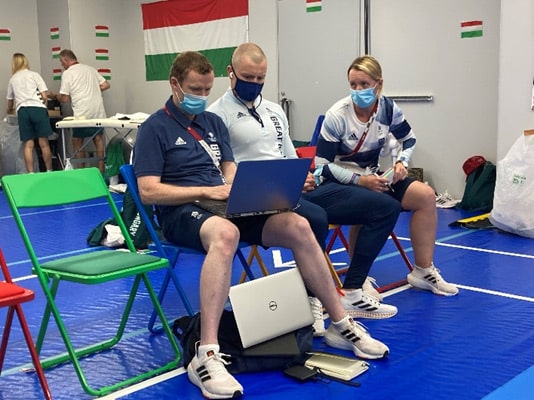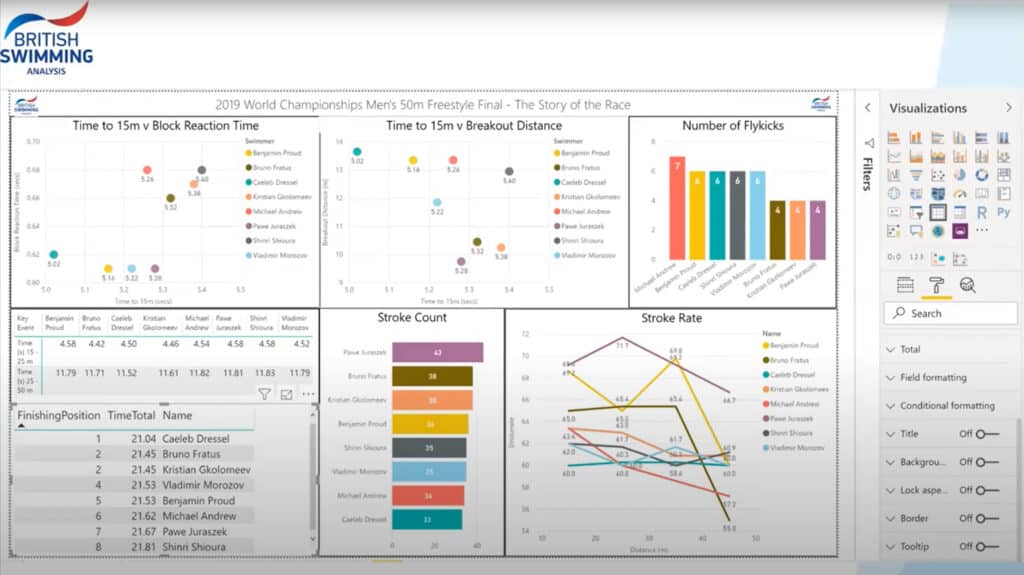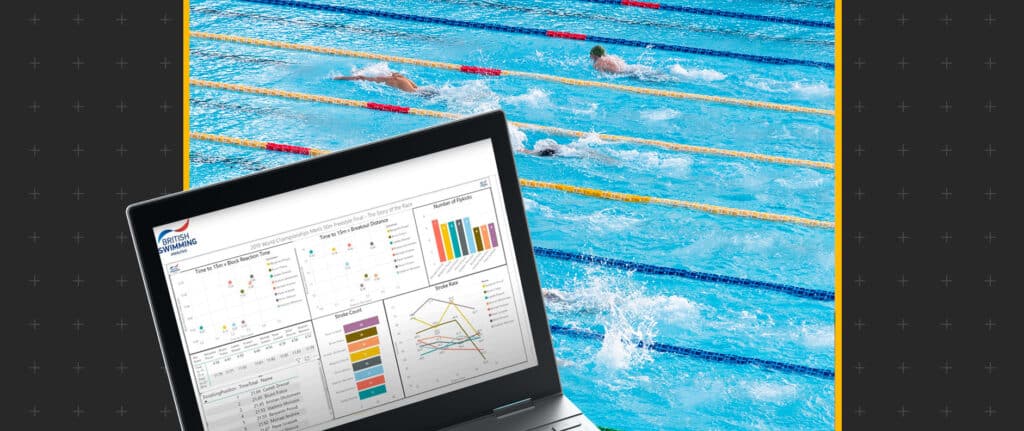Oliver Logan worked for the English Institute of Sports, before joining British Swimming five years ago. As the Head of Biomechanics, Innovation, and Performance Analysis, Oliver helps Olympic swimmers, Paralympic swimmers, and Olympic divers develop their skills, thanks to data generated by Dartfish video analysis.
The British Swimming Performance Team focuses on 3 key areas of swimmers’ and divers’ performance:
- The competition analysis,
- The biomechanical analysis,
- Skill acquisition to support performance intervention.
Evaluating Performance Skills
During swimming competitions, like the Olympics, Oliver and the coaches decide on the most relevant race events to track for each swimmer competing that day.
It could be evaluating factual events: time of the race, splits, stroke rate, stroke count, time of breath. It could also be evaluating technical appreciations: what the start was like, the turn or the finish, sectional times level or race pacing.
These metrics are used to compare each swimmer’s performance with their competitors, as well as the athlete’s progression race-by-race.
Between or after each session/race, swimmers, coaches and analysts meet to review each athlete’s performance and to assess points of improvement to better prepare for the next race.
Athletes and coaches can also analyze race videos and data individually, on their mobile phones or tablets.

The Story of the Race – An Efficient Dashboard for Race Competition Analysis
Each relevant race event recorded in the database, is combined with the corresponding video in Dartfish software.
At a first evaluation, swimmers can objectively see how their race went, clearly understanding what happened, where they performed well and where they need to improve.
At a second evaluation, data visualization tools like Power Bi, tell the story of a race through a powerful and interactive dashboard.
Indeed, by integrating race data in Power BI, coaches can easily compare many indicators of performance, in order to better detect an athlete’s performance points, those performed well and those needing improvement. And it’s also an objective tool for confirming or adapting decision-making by coaches.

Skill Acquisition, a Holistic Approach
Whereas data is used to identify the differences between athletes and races for informed decision-making, video provides athletes a visual representation of their performance, comparing that to how they felt about a performance.
Additionally, this data and video are an important element for the rest of the performance team, such as physiotherapists, S+C coaches, and even psychologists.

For example, if a swimmer’s start is identified as having potential to improve, the analysis team can provide data, including biomechanical factors that are affecting start performance. This can be further addressed via coordination with other disciplines, which includes a technical coaching perspective, to improve mobility and strength.
This interdisciplinary collaboration maximizes the impact of the support team and creates a performance connection for the athlete across all the support areas. Utilizing skill acquisition theory and methodology, can maximize learning and/or performance, depending on the focus of that block of work.

Ready to Maximize Your Athletes’ Development?
Contact us to develop effective dashboards, fully customized to
meet your exact needs. Fill out the form below:

Comments are closed.